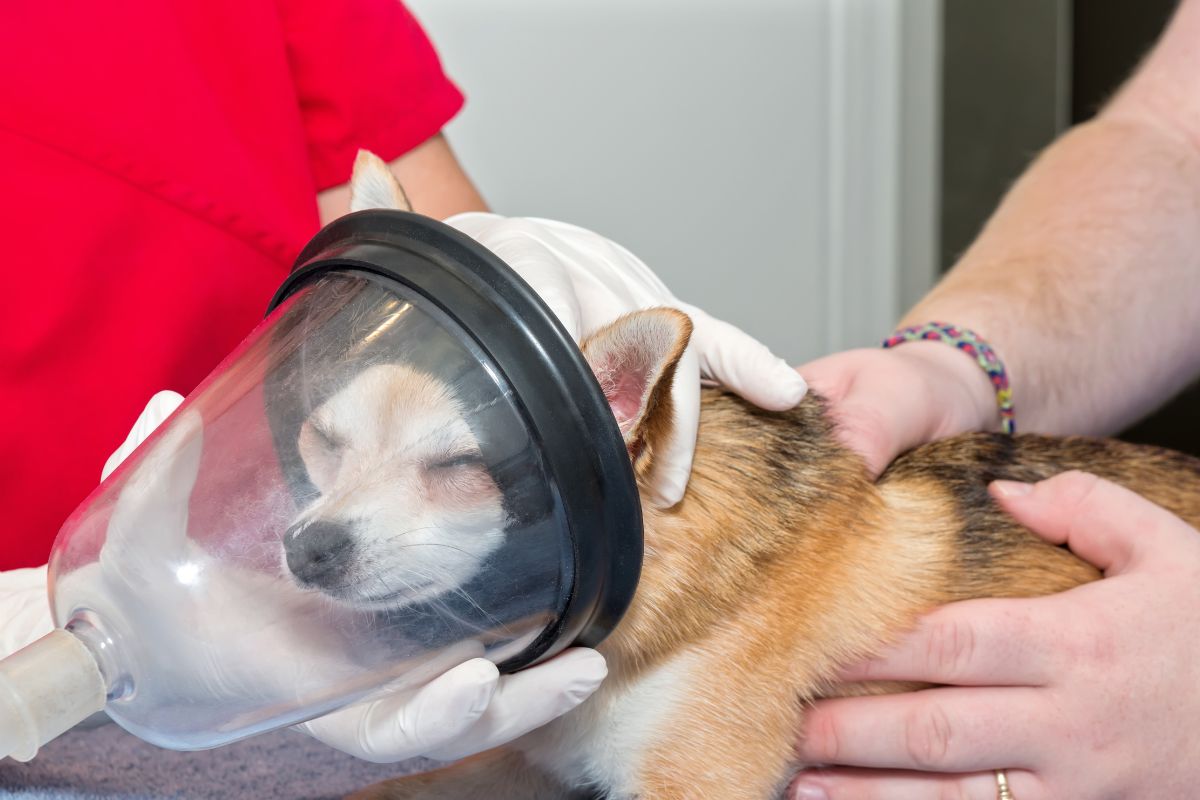How Many Books are in the Series?
The Practical Veterinarian book series is a well-organized collection reviewing clinically relevant issues. The series consists of seven different editions, including Veterinary Parasitology, Veterinary Anaesthesia, Small Animal Theriogenology, Veterinary Oncology, Small Animal Dentistry, Small Animal Cardiology, and Veterinary Toxicology.
In the following review, we will look at some of them.
















The Must-Haves for Your Bookshelf
Veterinary Toxicology (Practical Veterinarian) 1st Edition
By Joseph D. Roder, DVM Ph.D. DABVT
Publisher: Butterworth-Heinemann; 1st edition (February 1, 2001)
Language: English
Print length: 352 pages
Availability: New, used
Format: Paperback
Book Overview
This thorough review of clinically relevant toxins provides essential information on the sources, clinical symptoms, toxicity, mechanisms of action, diagnosis, and treatment choices you frequently encounter in veterinary practice.
This book has information alphabetically, making it easy to find the important information you require to diagnose and treat the animal in question.
The concluding chapter provides valuable information in the real world, such as collecting and storing samples, locating diagnostic laboratories that can analyze dangerous materials, and interpreting the data.
The book educates you on the most common poisons in clinical settings. Thanks to the alphabetical listing of toxicants and antidotes, you can zero in on certain information more quickly.
It also includes information on contacting veterinary diagnostic labs and poison control centers in each state.
Veterinary Parasitology: The Practical Veterinarian Series 1st Edition
By Lora A. Ballweber DVM MS
Publisher: Butterworth-Heinemann; 1st edition (January 10, 2001)
Language: English
Print length: 328 pages
Availability: Used
Format: Paperback
Book Overview
This comprehensive yet condensed manual aims to assist you in recognizing the most common parasites seen in clinical practice as quickly as possible. The primary ectoparasites and endoparasites are the subject of the first section of this book’s discussion.
Each chapter includes information on the life cycles of the parasites, diagnostic stages, geographic distribution, and diseases caused by the parasites. The data is well-organized according to the body systems. The book is crucial for students preparing for exams and also for use while providing medical care.
Veterinary Epidemiology (Practical Veterinarian) 1st Edition
By Margaret R. Slater, DVM PhD
Publisher: Butterworth-Heinemann; 1st edition (October 30, 2002)
Language: English
Print length: 240 pages
Availability: Used
Format: Paperback
Book Overview
This brief guidebook, which is part of the Practical Veterinarian series, will benefit both the classroom and actual veterinary practice. This handbook is a quick reference guide, with the material available in an excellent outline for treating clinical problems.
The presentation of the evidence-based content is in an easy-to-understand format and encompasses epidemiologic concepts and applications, zoonoses, outbreaks, population-level techniques, and more. It is pocketable in size for portability and convenience of use anywhere.
The information the reader needs is well-presented in a simple outline. The presentation of clinically significant zoonoses follows the natural order of species and organ systems.
It follows the clinical reasoning process, and the topics are according to the different types of decisions and questions that may come up in a clinical context. This facilitates the users’ ability to obtain relevant answers on time.
It provides a condensed overview of the application of evidence-based care tailored explicitly to veterinary medicine, including searches and data analyses. It explains, in a straightforward way, the mathematical and statistical principles that are essential in practice.
It contains several tables that provide an overview of the material in question. It also provides a portable resource for understanding epidemiologic terms and ideas relevant to national board examinations.
Veterinary Anesthesia: The Practical Veterinarian Series 1st Edition
By Janyce L. Cornick-Seahorn DVM MS DACVA DACVIM
Publisher: Butterworth-Heinemann; 1st edition (November 22, 2000)
Language: English
Print length: 304 pages
Availability: Used
Format: Paperback
Book Overview
A comprehensive analysis of veterinary anesthetic that is nonetheless easy to read and carry.
It contains tables describing medicine dosages and procedures that are easy to follow and are available for a diverse range of animal species. It is perfect for the use of students during their clinical rotations.
A handy must-have reference for veterinarians just starting in their practice, containing a comprehensive analysis of veterinary anesthetic that is easy to read and carry. It also consists of medicine dose tables that are simple to use and cover a wide range of species. The book is a must-have quick reference for veterinarians beginning new practices.
FAQS
What are the Adverse Reactions to the Effects of Anesthesia in Animals?
It is certain that at some point during the lives of most animals, they will require anesthesia for a painful procedure such as surgery or another medical procedure. Because of the anesthetic, the surgical operation will be entirely painless for your animal. The anesthetic is a medication cocktail that is completely safe and will depress your animal’s nervous system.
When your pet is under anesthesia for surgery, it will remain unconscious throughout the procedure and for a short time afterward. The use of anesthesia, even though it can be distressing to witness your animal lying unconscious on a hospital table, is relatively safe and helpful.
Nevertheless, you should know the potential adverse effects of using anesthetics on animals. The most typical adverse reaction to anesthesia in patients is swelling at the injection site. In most cases, the swelling will disappear within a few hours after the treatment.
Repression of the cardiovascular system is yet another potential adverse effect of this medication. This is much less common and almost always manifests in canines with pre-existing heart issues. If this occurs, our veterinarian will continue to monitor your pet’s vital signs and begin treatment as soon as possible.
What is Medical Parasitology?
Medical parasitology is the study of parasitic protozoa, parasitic helminths (worms), and those arthropods that either directly causes disease or act as vectors for a variety of different infections. A pathogen is a parasite if it causes harm to its host while also deriving its nutrition from the host.
Many creatures classified as parasites are, in fact, commensals since they neither benefit nor harm the host (for example, Entamoeba coli).
Although it has its roots in the zoological sciences, parasitology has evolved into a multidisciplinary field that is heavily affected by the disciplines of microbiology, immunology, biochemistry, and other areas of study in the field of life sciences.
Final Musings
The above collection is essential for any veterinary professional to keep. It will assist you in your practice and even your studies.
The Veterinary Parasitology: The Practical Veterinarian Series 1st Edition by Lora A. Ballweber, DVM MS, is the best book to consult when preparing for exams or providing medical care to patients in the clinic because it contains all pertinent information.








